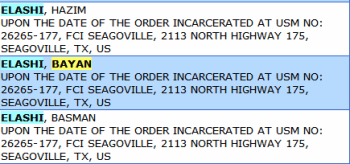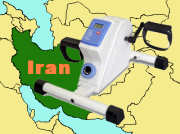 BIS just posted additional information on voluntary self disclosures on its website, including a slightly edited version of Wendy Wysong’s article (paid subscription required) from the December issue of The Export Practitioner entitled “BIS Data Show Benefits of Voluntary Disclosures.” The website also just posted descriptions of voluntary self-disclosures and their outcomes for 2004, 2005, and 2006.
BIS just posted additional information on voluntary self disclosures on its website, including a slightly edited version of Wendy Wysong’s article (paid subscription required) from the December issue of The Export Practitioner entitled “BIS Data Show Benefits of Voluntary Disclosures.” The website also just posted descriptions of voluntary self-disclosures and their outcomes for 2004, 2005, and 2006.
This is more fallout from the brouhaha that this blog started when it criticized the outcome in the EP MedSystems case and suggested that because of that case, a company should think long and hard before filing a voluntary self-disclosure with BIS. The posted article argues that VSDs often result in a 50 percent reduction of the maximum allowable penalty. As I’ve said before, this approach by BIS is somewhat disingenuous given BIS’s well-known ploy of trying to turn single exports into multiple violations. In all events, I am reviewing these new materials and will post my analysis of them later.
In the meantime, I did notice one interesting thing in the VSD article that I had not focused on previously:
Of course, disclosure of violations to BIS and BIS’s action on VSDs are not the only steps needed to fully address noncompliance issues. Disclosing parties must also continue internal improvement of their compliance efforts, programs, and processes. Corrective actions to address the underlying causes of noncompliance and to ensure that violations do not recur are a critical part of companies’ overall export compliance programs. In order to avoid a denial order
in cases involving knowledge, BIS looks particularly closely at the possibility of recurrence. Factors considered include the continued employment of culpable employees, the actual implementation of the export compliance program set forth on paper, and senior management commitment to future compliance.
Yikes. This is, to my knowledge, the first time that an export agency has publicly suggested that a company filing a voluntary disclosure needs to fire the employees involved. Even the Thompson Memorandum, which discusses considerations in charging a criminal offense, says that the prosecutor should consider what the company has done to “discipline or terminate [the] wrongdoers.” Here BIS is suggesting that employees involved in a civil violation should simply and automatically be terminated, without even any consideration of other disciplinary measures that might be more appropriate to the circumstances.
The sucking sound you are now hearing is the sound of hundreds of export compliance officers looking for new jobs.

 Posted by
Posted by  Category:
Category: 

 One of the things that SCP Global Technologies got in trouble for according to the
One of the things that SCP Global Technologies got in trouble for according to the  BIS will send you,
BIS will send you, 
 OFAC just released its
OFAC just released its  Next time you are in the airport, don’t be surprised if some ICE agents, dressed as Viking pillagers, come running after you in the jet-way screaming “What’s in your laptop?” At least that’s a possibility hinted at by BIS Assistant Secretary Darryl Jackson’s
Next time you are in the airport, don’t be surprised if some ICE agents, dressed as Viking pillagers, come running after you in the jet-way screaming “What’s in your laptop?” At least that’s a possibility hinted at by BIS Assistant Secretary Darryl Jackson’s 

